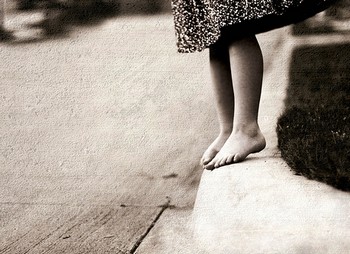The delicate balance by which life is kept alive is so delicate that it takes but a fraction to turn order into chaos in an instant. In fact, even though it appears to happen that way, the symptoms of imbalance begin long before they are seen and experienced but the mind requires awareness of its own perceptions and its own way of functioning to become aware of them. Simply put, it requires a conscious way of living. Although every human’s sense of balance was different, due to the uniqueness of their presence, there was a way of recognizing when instability had arisen within before it fully invaded and created an even greater sense of destruction, and a collapsing reality.
Here is a list of 5 silent warnings that your life is out of balance and some ways to restore balance right now.
1 – Lack of Enthusiasm
One of the first silent symptoms of an out-of-balance life is a lack of enthusiasm. The joy found at the heart of natural life fuels the core of the human experience. To be outside this core is to be detached from the vital essence that replenishes life and ensures its forward motion and fullness. When the being is not nourished with its most favorite food which is self-love, it naturally moves back to the center of its experience and can finally feel again the vital flow that flows and drives it.
Notice: lack of interest, lack of passion, feeling of indifference, boredom.
2 – Lack of Inspiration
Humans are born visionaries. Imagination is so ingrained in his nature that this is indeed the spark that illuminates his reality. When the self is out of balance, unconnected and without connection, there is no sense of aspiration, no way to direct inspiration anywhere. It becomes a wasted creative process that wastes energy instead of producing more. To put inspiration back into the picture, you have to be willing to reconnect your mind with your heart and get your feelings and thoughts in sync. It is important to clarify perception and refocus the lens to the inner feeling of happiness.
Notice: feelings of hopelessness, torment and sadness, seeing chaos or order, vibrations of being a victim, feelings of helplessness.
3 – Minor Body Injury
While bodily injuries are more visible than the dangerous lack of enthusiasm and inspiration that moves through the body without loud warning, they are often overlooked and not considered because of their common occurrence. For example, cuts, bruises, and burns may be dismissed as simple accidents of inattention, but they reveal a great deal of inner distress trying to surface through these uncomfortable situations. Wounds and burns are systematic and unexpressed outbursts of anger. Turned inside to hide and not be judged, they will reappear through subconscious self-inflicted wounds such as burns and cuts.
Watch for: cuts, burns, bruises, recurring joint pain, lower back tension, headaches and more.
4 – Negative Attitude
The inability of the conscious mind to systematically take over the way we positively choose to perceive our reality is a lack of balance and a hint that the subconscious, which is dealing with deep, unhealed wounds, is empowered. When we tend to constantly blame, point fingers, belittle or accuse, criticize, complain, criticize, belittle or condemn, we reveal a profound lack of compassion and ultimately display a sense of detachment within ourselves. Imbalance is caused by a lack of unity within and is called upon to bring together all the pieces of ourselves. “Gathering all in peace means uniting all.” ~Aline Hanle
Notice: The words you use, the negative comments, your sense of rebellion, where you focus your thoughts.
5 – Compensatory Behavior
Last on this list but not least are the compensatory behaviors we cite to make us feel good when we feel out of balance. Over-shopping, over-eating or dealing with life overly in any way is a demonstration of a lack of stability within and a call to regroup all senses, thoughts and self-definitions into a single focal point on which we can stand. These exaggerated behaviors are temporary solutions that provide immediate relief for our lack of happiness, but they add to the challenge of finding centeredness again.
Watch for: tendencies to excess, feelings of guilt towards self and others, compulsive behavior.








